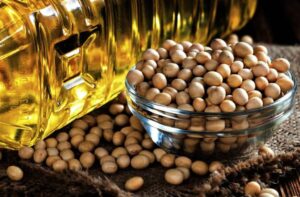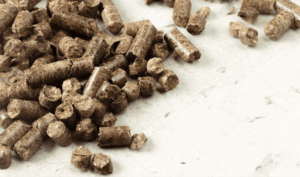
Imports of trucks to Ukraine in January-September 2025 grew by 11.6% in monetary terms compared to the same period in 2024, reaching $740.18 million, according to statistics from the State Customs Service.
According to the published data, the growth rate of imports of this type of vehicle accelerated, in particular, in the first half of the year, it amounted to 6.2% compared to the same period in 2024.
In September, truck imports increased by 32.7% compared to September 2024, reaching $105.8 million.
Most of the trucks were imported from Poland in the first nine months, accounting for $141.12 million (19% of the total), followed by France with $115 million (15.5%) and the United States with $102.4 million (13.8%).
A year ago, the top three truck supplier countries were the same, with Poland importing $137.8 million, France $78.3 million, and the US $66.2 million.
Imports from all other countries increased slightly in January-September, amounting to $381.7 million.
At the same time, according to statistics, Ukraine exported only $4.4 million worth of trucks in nine months, mainly to Turkey (52.7% of exports), Romania (41%), and Moldova, while a year earlier there were even more insignificant export deliveries ($2.4 million), mainly to Moldova, Poland, and Kazakhstan.
As reported, in 2024, imports of trucks to Ukraine in monetary terms increased by 30% compared to 2023, to $947.84 million, with most of them imported from Poland (almost 20%).

Soybean oil exports in the 2024-2025 marketing year (MY) increased by 52.5% in physical terms to 521.3 thousand tons, and by 98% in monetary terms to $521.7 million compared to the previous year, according to the industry association Ukroliyaprom.
The association noted that exports of soybean meal in 2024/2025 MY increased by more than 95% to 1,336,800 tons, and in monetary terms by 54.4% to $461.1 million.
“This indicates the demand for soybean oil and meal in many countries around the world, in particular the EU, and the unique opportunities for increasing domestic processing of raw materials and growing production and exports of high value-added products,” Ukroliyaprom noted.
The industry association specified that Ukrainian processors exported 85% of soybean oil to EU countries and the remaining 15% to other countries around the world. The leaders in the purchase of Ukrainian soybean oil in the 2024/2025 marketing year were Poland (345,300 tons worth $344.5 million), Germany (22,000 tons worth $22 million), Bulgaria (17,900 tons worth $16.3 million), as well as India (36.7 thousand tons worth $35.3 million), Saudi Arabia (11 thousand tons worth $11 million), and the UAE (7.2 thousand tons worth $8.2 million).
The situation with soybean meal exports in 2024/2025 MY was similar: 81.3% was supplied to EU markets, 18.7% to other countries. Poland (475 thousand tons worth $180.9 million), Hungary (256,200 tons worth $86.6 million), Romania (107,000 tons worth $35.2 million), and Turkey (78,700 tons worth $22.3 million).

In January-September of this year, Ukraine reduced its imports of coke and semi-coke in physical terms by 4.6% compared to the same period last year, to 491,166 thousand tons.
According to statistics released by the State Customs Service (SCS), coke imports in monetary terms decreased by 10% during this period, to $165.721 million. It was mainly imported from Poland (91.93% of supplies in monetary terms), Indonesia (5.77%), and the Czech Republic (2.26%).
During this period, Ukraine exported 3 tons of coke worth $2,000 to Albania.
As reported, Metinvest suspended the operation of the Pokrovsk Coal Group in January this year due to changes in the situation on the front line, electricity shortages, and the deterioration of the security situation.
Last year, Ukraine increased its imports of coke and semi-coke in physical terms by 2.01 times compared to 2023, to 661,487 thousand tons, importing it mainly from Poland (84.76% of supplies in monetary terms), Colombia (7.74%), and Hungary (2.69%). In monetary terms, imports increased by 81.9% to $235.475 million.
In 2024, the country exported 1,601 thousand tons of 84.76% coke worth $368 thousand to Moldova (99.18%) and Latvia (0.82%), while in January, March, October, and November 2024, there were no exports, whereas in 2023, they amounted to 3,383 thousand tons worth $787 thousand.

According to the results of the 2024-2025 marketing year (September 2024 – August 2025), Ukraine exported 158,000 tons of granulated beet pulp worth a total of $23.2 million, the National Association of Sugar Producers “Ukrtsukor” reported on Facebook.
The industry association noted that the largest importers of Ukrainian beet pulp were Germany with 22% of the total volume of its exports from Ukraine, Spain and Poland with 21% each, followed by Italy with 12% and the Netherlands with 9%.
According to the business association, the leaders in beet pulp exports were Radekhivsky Sugar, Almeida Group, and Ukrprominvest-Agro, which together exported 83% of the total volume.
“The production and export of granulated pulp is not only an effective use of a by-product of sugar production, which increases the profitability of the beet sugar industry as a whole, but also provides additional export revenue, which the country so badly needs today,” Ukrtsukor concluded.

Polish President Karol Nawrocki has signed a law on “aid to Ukrainian citizens” aimed at regulating the future status of Ukrainians living in Poland, his office said.
According to the head of the president’s office, Zbigniew Bogucki, this law is the “last” in the framework of special assistance to Ukrainians. It extends the legal stay of Ukrainian citizens who have fled the war until March 4, 2026, and links the right to receive social assistance to criteria such as employment or children’s education in Polish schools.
“The decisions laid down in this law effectively put an end to tourism from Ukraine at the expense of Polish taxpayers,” Bogucki said at a press conference. He stressed that with the adoption of the law, Poland intends to “move to normal conditions” by applying the same rules to Ukrainian citizens as to other foreigners residing in the republic.
The main provisions of the law
• Extension of the period of legal stay in Poland under temporary protection status until March 4, 2026.
• Restriction of access to benefits: payments will depend on the availability of work or education for children. Exceptions are provided for parents of children with disabilities.
• Strengthening control over the use of the “special assistance” mechanism and clarifying the legal status of Ukrainians in Poland.
• The desire to reform the assistance system so that it eventually approaches a standard migration system.
Lawmakers in the president’s office say that further continuation of this scheme is impossible, and now Ukraine and Poland must move towards more sustainable regulation of the stay, employment, and integration of Ukrainians.
According to media reports, there are at least 1.5 million Ukrainian citizens in Poland in 2025.
Source: http://relocation.com.ua/polish-president-signs-law-extending-aid-to-ukrainians-until-march-4-2026/

In Poland from the beginning of 2026, a significant increase in the size of fines for the absence of a valid policy of compulsory insurance of civil liability of the driver for owners of vehicles is expected, reports the Motor (Transport) Insurance Bureau of Ukraine (MTSBU) on its Facebook page.
So for passenger cars the maximum fine will be 9,610 thousand zlotys (approximately 110 thousand UAH), for trucks – up to 14,420 thousand zlotys (approximately 165 thousand UAH), for motorcycles – from 530 to 1600 zlotys (6-18 thousand UAH) depending on the number of days without coverage.
The amount of the fine varies depending on the period of stay without an insurance policy: 1-3 days – PLN 1,920 thousand (UAH 22 thousand); 4-14 days – PLN 4,810 thousand (UAH 55 thousand); more than 14 days – the full amount of PLN 9,610 thousand (UAH 110 thousand).
According to information, the increase in fines is due to the increase in the minimum wage in Poland to PLN 4,806 thousand (UAH 55 thousand) from January 1, 2026. The system of calculating fines is tied to its size:
MTSBU reminds Ukrainian drivers who are in Poland or planning to travel abroad: be sure to check the validity of the insurance certificate “Green Card” and timely renew it.